The greatest approaches to preserve your natural energy levels are to consume a well-balanced diet, exercise frequently, and get adequate sleep. However, it’s not always possible to juggle all of life’s commitments, so this. The synthesis of enzymes, hormones, and other compounds necessary for the body’s functioning normally, immunity, reproduction, and general growth and development depends on vitamins and nutrients. There are around 13 vitamins total, including vitamins A, C, D, E, and K, as well as the B vitamins thiamine (B1), riboflavin (B2), niacin (B3), pantothenic acid (B5), pyrroxidine (B6), biotin (B7), folate (B9), and cobalamin (B12), which ensure that the body is healthy and has enough energy.
Eating a balanced diet made up of a variety of foods is the best approach to ensure that you obtain enough of the 13 necessary vitamins. The importance of each vital vitamin is explained here, along with the best foods from which to receive each vitamin. Here are 13 best vitamins for energy you can try.
Best Vitamins for Energy you Can Try
1. Vitamin A

Vitamin A is thought to be essential for energy synthesis in our cells. Additionally, it improves the health of the bones, teeth, gums, glands, gums, and skin; reduces night blindness; and could possibly prevent lung cancer. Salmon, other cold-water fish, egg yolks, and fortified dairy products are a few of the foods high in vitamin A.
2. Vitamin D

Calcium is better absorbed when vitamin D is present, strengthening bones. Sunlight is the finest natural source of vitamin D, while milk, cereal, fatty fish, and egg yolk are food sources as well. You should search for this vitamin in your multivitamin supplements if your exposure to direct sunlight is insufficient and your food sources are unable to give suitable quantities for you.
3. Vitamin E

In addition to protecting fatty acids, vitamin E also keeps muscles and red blood cells healthy and acts as a significant antioxidant. It assists red blood cells, which are necessary for transporting oxygen from your lungs to the rest of your body through the blood. Your body cannot produce energy without this essential process. Notable food sources of vitamin E include eggs, vegetable oils, margarine, mayonnaise, almonds, seeds, and fortified cereals. Surely it is one of the best vitamins for energy.
4. Vitamin C (Ascorbic Acid)
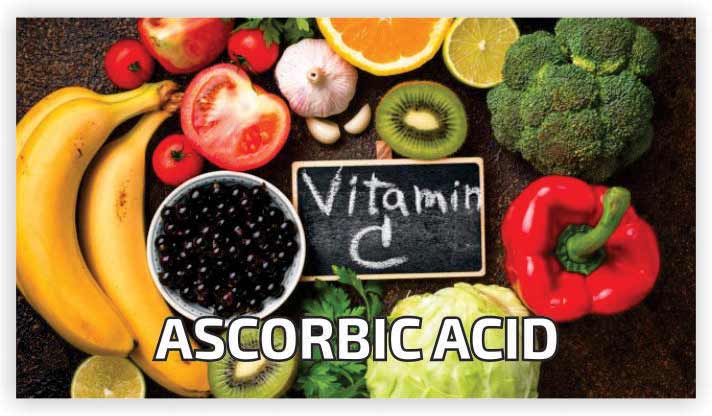
Citrus fruits include vitamin C, which is a crucial nutrient for your health. It works as an important antioxidant, strengthens blood vessel walls, improves immunity, speeds up wound recovery and iron absorption, and prevents atherosclerosis. Vitamin C is largely found in citrus fruit, juice, melons, berries, peppers, broccoli, and potatoes.
5. Vitamin K
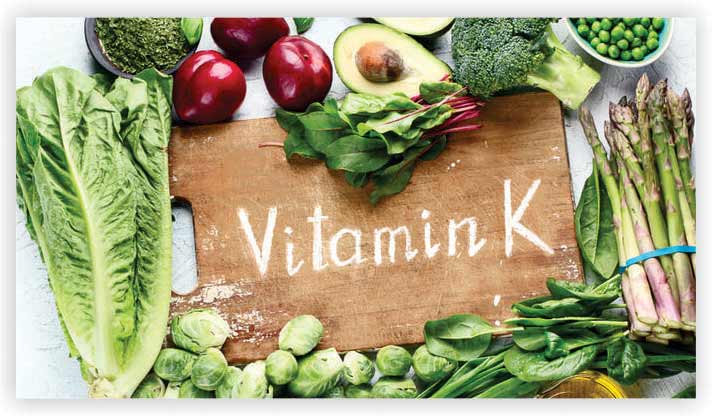
Your body needs vitamin K to function properly. Prothrombin, a protein that is essential for blood clotting, bone metabolism, and heart health, is made by the body with the help of vitamin K. Additionally, vitamin K aids in cell mitochondria’s ability to produce energy. Vitamin K is abundant in liver, spinach, broccoli, and other green vegetables.
6. Vitamin B12 (Cobalamin)
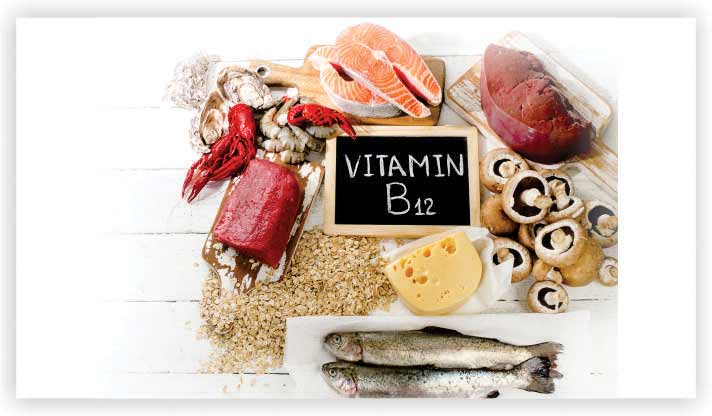
This vitamin is one among, if not among the best vitamins for energy. The B-Vitamin Complex, which consists of an army of eight active vitamins, is the body’s powerhouse for energy. It converts carbohydrates, proteins, and fats into energy that is then retained in the body. Meat, fish, poultry, milk, and fortified morning cereals are all sources of vitamin B12, but vegans must supplement their diet with multivitamins to acquire the same amount of this vital vitamin.
7. Vitamin B1 (Thiamin)
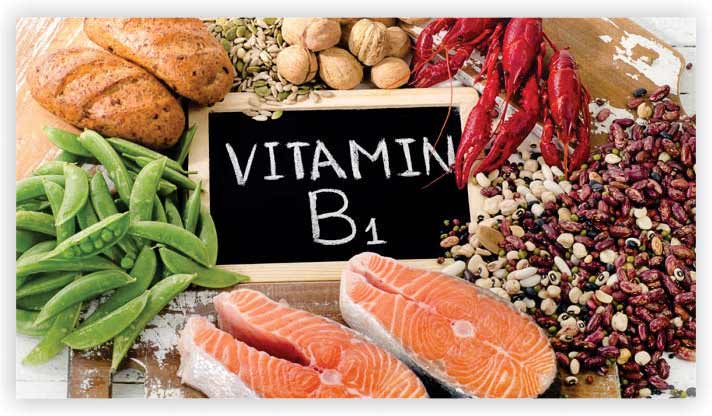
For the upkeep of a healthy metabolism, vitamin B1 is crucial. Additionally, it supports healthy neuronal activity, appropriate appetite and digestion. The body’s cells use thiamin to convert carbohydrates into energy. Carbohydrates’ primary function is to fuel the body, particularly the brain and neurological system. Additionally, thiamin facilitates in nerve signal transmission and muscle contraction. Pork, legumes, nuts, seeds, fortified cereals, and grains all contain it.
8. Vitamin B2 (Riboflavin)
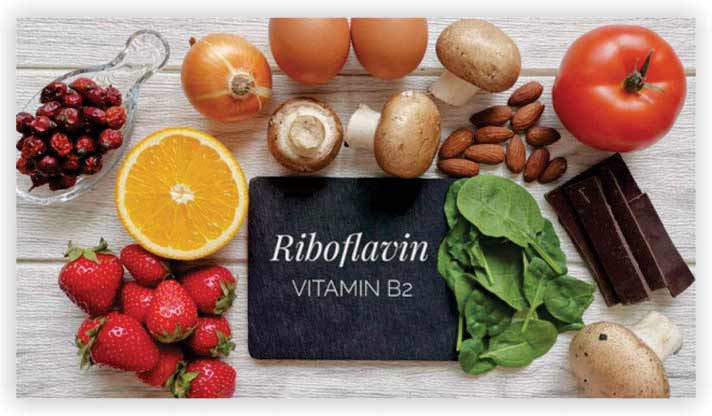
The metabolism of energy depends on vitamin B2. Additionally, it promotes healthy skin, proper vision, and adrenal function. The body requires riboflavin, a water-soluble, heat-stable vitamin, to convert protein, lipids, and carbs into glucose for energy. This vitamin not only increases energy but also serves as an antioxidant for healthy skin, hair, and immune system function. Lean meat, chicken, dairy products, fortified soy/rice beverages, and raw mushrooms offer good amounts of Vitamin B2.
9. Vitamin B3 (Niacin)
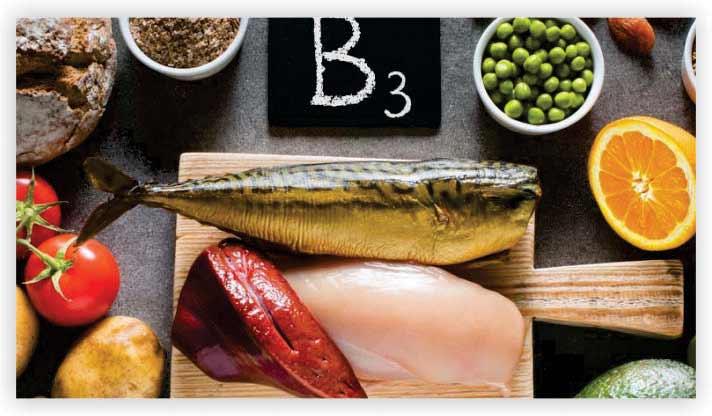
Body needs vitamin B3 to function properly. It facilitates typical growth and is needed to metabolise energy. Vitamin B3 can help decrease cholesterol when taken in sufficient levels. Niacin helps a number of enzymes turn food into ATP, a source of energy, nevertheless taking dosages far above the RDA will not result in a noticeable increase in energy levels. Lean meats, poultry, shellfish, milk, eggs, legumes, fortified breads, and cereals all contain B3.
10. Vitamin B5 (Pantothenic Acid)
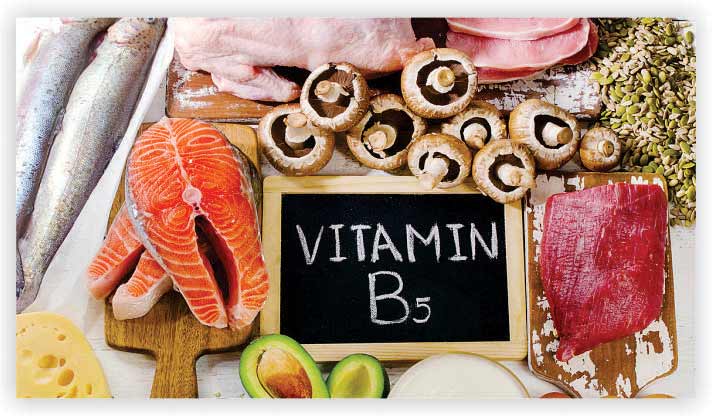
Vitamin B5 is a pretty simple vitamin to find, despite being one of the important vitamins. It is a water-soluble vitamin that aids in the oxidation of lipids and carbohydrates to produce energy. Additionally, it supports healthy liver, eyes, skin, and hair. B5 is required for the synthesis and metabolism of coenzyme A, proteins, and lipids in humans. You can find vitamin B5 in practically all of the foods you eat.
11. Vitamin B6 (Pyridoxine)
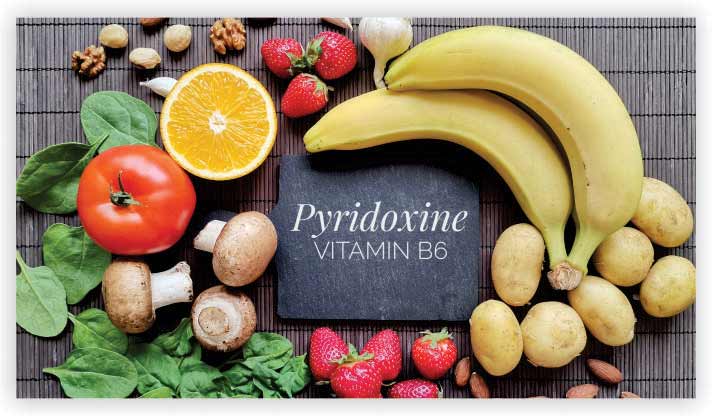
Vitamin B6 improves protein metabolism, carbohydrate metabolism, and energy release. Additionally, it helps red blood cell production and healthy neuronal activity. It converts food into energy and aids in the production of neurotransmitters like serotonin and dopamine. It can be found in grains, cereals, bananas, green leafy vegetables, potatoes, soybeans, meat, fish, and chicken.
12. Vitamin B7 (Biotin)
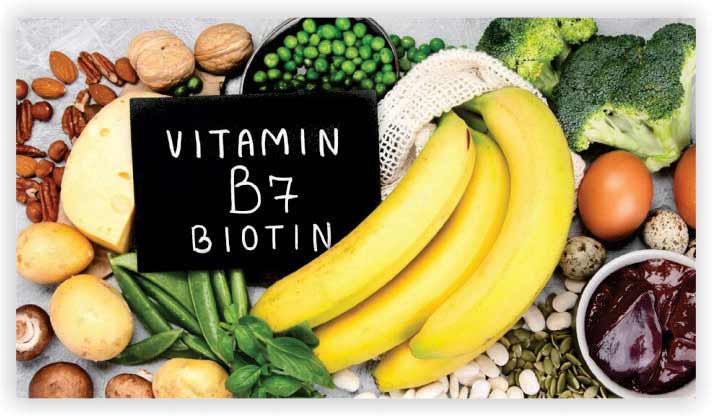
A significant part of vitamin B7’s function is in preserving a healthy metabolism. The capacity of biotin to metabolise carbs, proteins, and lipids is one of its main roles. This vitamin aids in the synthesis of fatty acids and some amino acids and also serves as a coenzyme. Yeast, whole grains, almonds, soybeans, and egg yolks are foods that contain vitamin B7.
13. Vitamin B9 (Folate, Folic Acid)
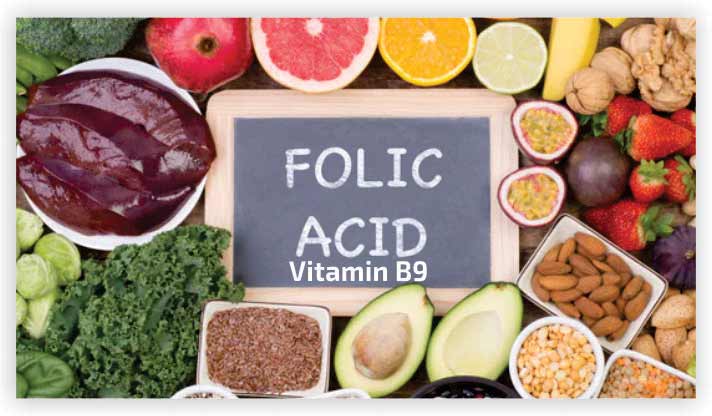
The importance of vitamin B9 during pregnancy cannot be overstated. This is due to the fact that it helps to synthesise a number of amino acids as well as DNA, RNA, and red blood cells. The nutrient is essential in the early stages of pregnancy to lower the chance of brain and spine birth abnormalities. Liver, yeast, leafy green vegetables, asparagus, orange juice, fortified flour, avocados, and legumes are some foods that contain it.
Takeaway
And that’s it, the 13 best vitamins for energy you can try. Men, however, have different needs for energy vitamins than do women. Men are less prone to iron shortage, for example, because they do not experience blood loss like women do during menstruation. On the other hand, women’s needs for energy-boosting vitamins fluctuate constantly over the course of their lives. Teenagers have various needs, while women who are nursing have different needs during menopause and pregnancy.
The point is to understand your need. A healthy diet should provide you with as many vitamins and minerals as feasible.
Read More:
- Top 10 Alkaline Foods to Add in Daily Diet
- List of Top 10 Healthcare Companies in India
- Best Plant Based Protein Powder

Business Talk is a digital business magazine that caters to CEOs, Entrepreneurs, VC, and Corporates. While working with entrepreneurs and business executives, we focus not only on their achievements. Our mission is to shed light on business entities, including their innovations, technological benchmarks, USPs, and milestones/accolades.













